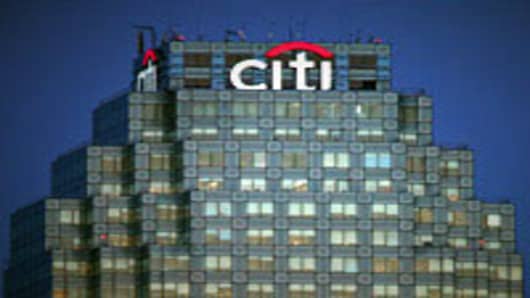Citigroup's recent arrangement for converting some of the government’s preference shares into ordinary shares causes a significant loss to the retail investor, Citigroup shareholder Victor Filatov, former president of Capula Investment Management, told CNBC.
"People felt lucky when they first heard about the deal because they were afraid that they were going to get nothing, that bankruptcy or full nationalization was imminent and consequently, what are we going to get for that," he said.
"An institutional investor or retiree … they should look at what their rights are," Filatov added. "Citigroup owes some answers as to why there's no vote, as to why there's a discount, why are they cutting the dividend, and what's going to happen."
Last week, Citigroup and the US government announced a deal that would see the bank convert preference shares into ordinary shares and the US take a 36 percent stake in the company.
In exchange, Citigroup got a reduction of the coupon they are required to pay out on the government’s preference shares and an improvement in the measures of liquidity within the bank because of the way preference and ordinary shares are treated in capital terms.
"There were set terms for the conversion of preferred shares into common stock for the private investors and for the government," Filatov said.
When Citigroup did the deal, the public and the retail investor were not offered anything close to the deal the private investors and government got. It was a premium over par, he added.




